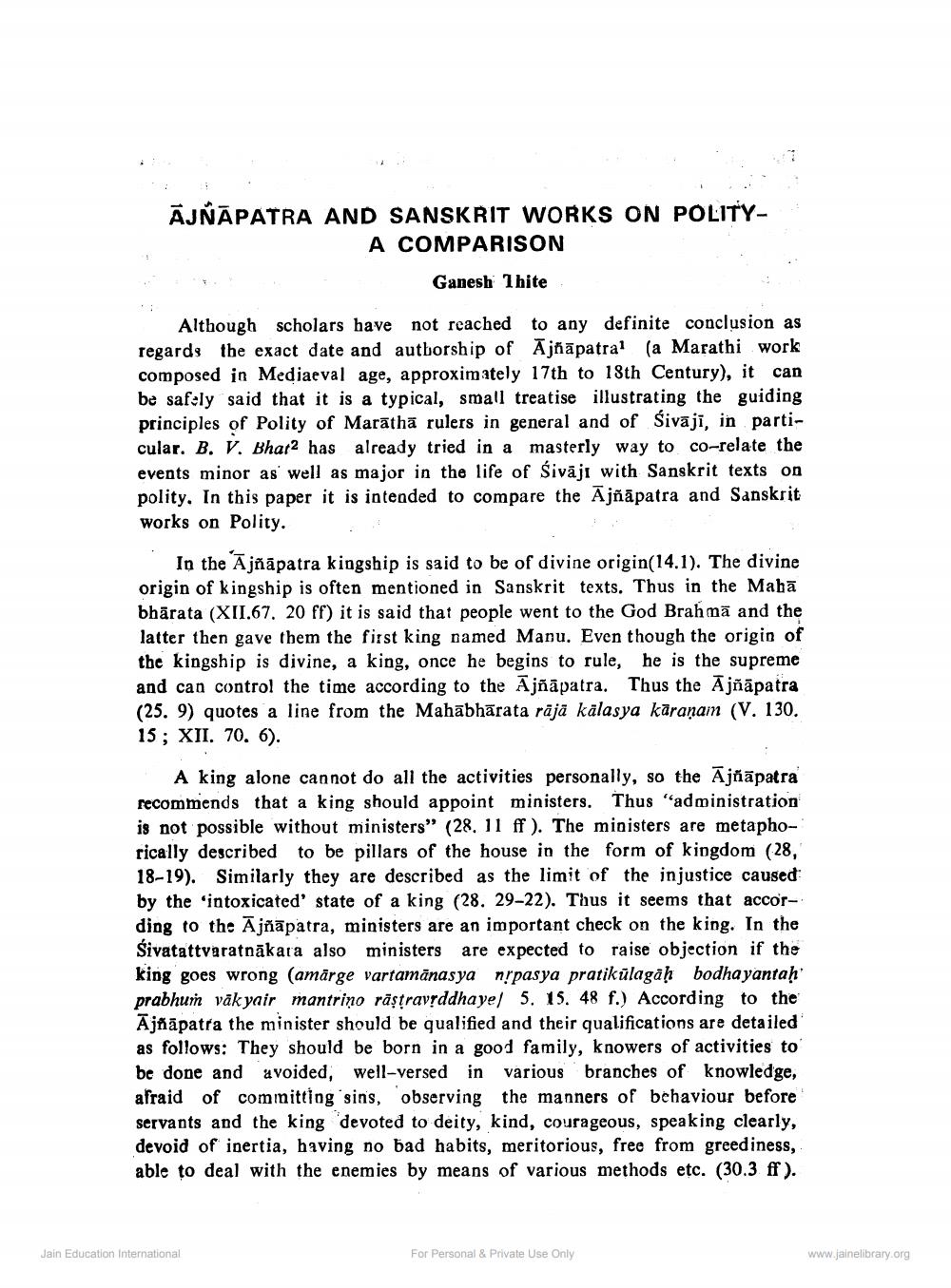________________
ĀJÑĀPATRA AND SANSKRIT WORKS ON POLITY
A COMPARISON
Ganesh 1hite
Although scholars have not reached to any definite conclusion as regards the exact date and autborship of Ājñāpatral (a Marathi work composed in Mediaeval age, approximately 17th to 18th Century), it can be safely said that it is a typical, small treatise illustrating the guiding principles of Polity of Marathā rulers in general and of Sivāji, in particular. B. V. Bhat2 has already tried in a masterly way to co-relate the events minor as well as major in the life of Sivāji with Sanskrit texts on polity. In this paper it is intended to compare the Ājñāpatra and Sanskrit works on Polity.
In the Ājñāpatra kingship is said to be of divine origin(14.1). The divine origin of kingship is often mentioned in Sanskrit texts. Thus in the Mabā bhārata (XII.67, 20 ff) it is said that people went to the God Brahmā and the latter then gave them the first king named Manu. Even though the origin of the kingship is divine, a king, once he begins to rule, he is the supreme and can control the time according to the Ajñāpatra. Thus the Ajñāpatra (25. 9) quotes a line from the Mahābhārata rājā kalasya kāraṇam (V. 130. 15; XII. 70. 6).
A king alone cannot do all the activities personally, so the Ājñāpatra recommends that a king should appoint ministers. Thus "administration is not possible without ministers" (28. 11 ff). The ministers are metaphorically described to be pillars of the house in the form of kingdom (28, 18-19). Similarly they are described as the limit of the injustice caused by the 'intoxicated' state of a king (28. 29-22). Thus it seems that according to the Ājñāpatra, ministers are an important check on the king. In the Śivatattvaratnākara also ministers are expected to raise objection if the king goes wrong (amārge vartamānasya nipasya pratikūlagaḥ bodhayantaḥ prabhun vāk yair mantrino rāştravyddhayel 5. 15. 48 f.) According to the Ājñāpatra the minister should be qualified and their qualifications are detailed as follows: They should be born in a good family, knowers of activities to be done and avoided, well-versed in various branches of knowledge, afraid of committing sins, observing the manners of behaviour before servants and the king devoted to deity, kind, courageous, speaking clearly, devoid of inertia, having no bad habits, meritorious, free from greediness, able to deal with the enemies by means of various methods etc. (30.3 ff).
Jain Education International
For Personal & Private Use Only
www.jainelibrary.org




